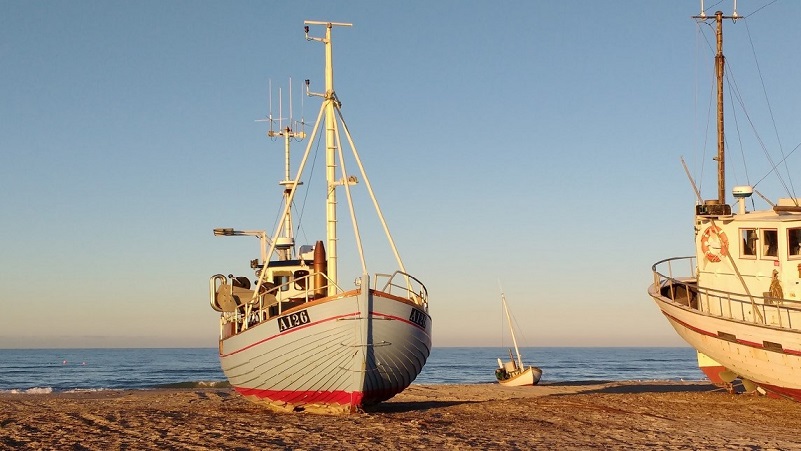Reflections on the yearly research group seminar
I have just attended our yearly DCEA research group seminar. But what is it really about, why are we doing it, and what makes it a great experience?

The setting
We meet once a year for two consecutive days. Usually the venue is chosen close to nature and far from the offices, so that we can take walks and fresh air. The place should be able to host the entire group (approx. 10 people this time) for the night and have a seminar room. It can be more or less low-cost depending on the budget available. For instance, last year we rented a scout-hut and prepared food ourselves (amazing slow-cooked roast by Ole and Anne), this time we stayed at a hotel with service. The program is organized in blocks of two hours and is rather flexible, the block activities are co-organized by the participants around one or two main themes, and include open air activities too. Then there is a social program.
The content
I think the topics of this year were particularly interesting and relevant and that is what made the meeting very successful.
The first issue we addressed is funding. And we really approached it comprehensively. This went from a general-level discussion (powered by an internal expert) about how to improve the applications process as a group to increase success rate, to discussing concrete oncoming applications, to the very practical exercise of reading and commenting each other’s past applications and new ideas. This was also a chance to hear success stories and failure stories. These activities inevitably lead to a discussion of our research strategy, its critical revision, and a brainstorm of what is our research vision as individual scientists and as a group. The outcome was somehow not conclusive but I think the process was far more important than the outcome in this case, as we had a necessary reflection on who we ultimately are as a group. For example, we observed how many similarities there are in the past and oncoming research in life cycle assessment and environmental impact assessment, despite the evident differences between the two tools and type of approaches and methods used in the respective scientific communities.
The second issue we addressed is work ethics. In particular we discussed and compared practices regarding authorship of scientific articles: when is somebody a co-author, what is a substantial contribution? What are the problems we encountered and how we solved them? We also touched on data sharing: when and how is appropriate to share data, to what extent should be done to achieve a good balance between being open to the research community but also protect our own work? What if others use our research material and data for writing publications? Who owns the data in a group context, and in a collaborative project context? What are advantages and limitations of working open source for us? And again we exchanged experiences in data protection and sharing, good practices, success and failure stories. For example I learnt a lot about the issues in storing and sharing interview data and in general on data sharing in social sciences, that was quite enlightening.

The reflection
There are two key points that I particularly appreciate about the event.
-
The seminar is about sharing. It’s amazing how easily you can lose track of others’ work progress even if they sit in an office two meters from yours. So it is the moment to make a status and share our current and recent activities and achievements and get updated. Then there is the sharing of ideas and future plans, which is made possible by the open environment, where one can feel comfortable telling about personal research plans, get feedback, and ask questions to others. And last but not least there is the sharing of experiences in a learning perspective. For me it is really instructive to hear what other colleagues went through regarding e.g. applications, papers, projects, etc. This is useful to anticipate future problems and plan ahead, and to see what are different approaches or problems in a dynamically changing academic world.
-
In a typical Danish style there is a flat hierarchy at the seminar. PhD students and professors sit at the same table and discuss the same issues. This is a tremendous learning opportunity for the junior staff. I had no idea of what an application looked like before reading some here at the seminar! said one of our PhD colleagues, just to make a simple example. We grow better researchers this way.
The social
Like it or not, we are people before being researchers. And people like beautiful things! Beautiful nature like frozen sand dunes, a giant moon, and a pastel colored sky are breathtaking. Food and drinks quality definitely lived up to the standards of a very picky Italian. And good talks where I realized I don’t have a totem or spirit animal (where can you find a shaman on google and order one?) are an essential success factor for the event. Next time we plan a pony-ride though so maybe we have something to work on…! Closing on DCEA’s 2016 seminar and looking forward to next year’s one.